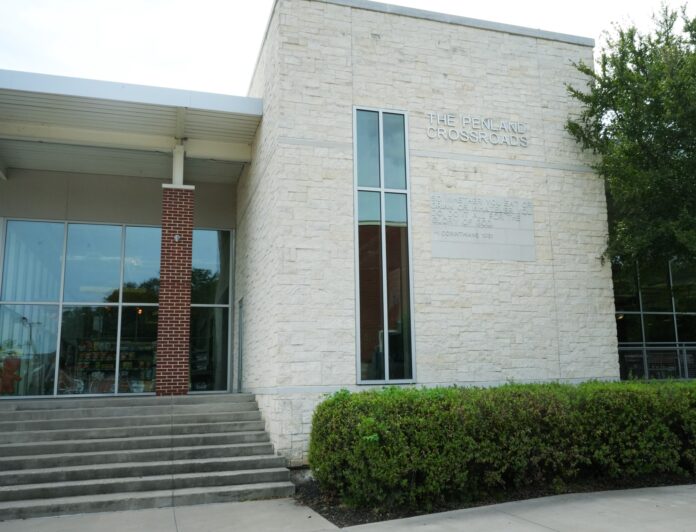
By Tyler White | Staff Writer
Baylor partnered with Texas-based company Moonshot Compost in April to begin a pilot project at the Penland Crossroads dining hall, taking food waste and turning it into compost. Chris Wood, one of the founders of Moonshot, said Aramark reached out to the company because it thought Baylor was a great fit for the project.
“Baylor was able to move as quickly as they were to get a pilot in place last spring that we continued over the summer, and now we’re really excited to keep it going at Penland and expand it to a couple more locations this fall,” Wood said.
According to the online dashboard, the project has diverted over 32,000 pounds of food waste from landfills. Additionally, the dashboard shows the environmental impact of this diversion: 25,281 miles not driven, 1,679 trees planted and 22,216 pounds of carbon dioxide saved.
“From the university’s perspective, they now get to show their students on the diversion dashboard not only that the program is happening, but what the climate impact of the program is,” Wood said.
Smith Getterman, Baylor’s director of sustainability and special projects, said the project has succeeded because it doesn’t require user experience or education for involvement. He said students don’t need to adjust any of their habits or activities to contribute.
“Moonshot really offers the best based solution for a university or an organization of our size that wants to divert landfill waste,” Getterman said. “They make it as easy as possible. It doesn’t require any of the users’ experience or trying to educate users on the front end before it gets to the back of the house.”
At the dining hall, staff at the back of the house take the food and organic waste from the plates sent to the kitchen and put them into a machine. The waste is then transferred into barrels, which Moonshot picks up from the Penland docks to take to compost facilities.
Getterman said Baylor plans to continue expanding the project to other areas of campus, including 1845 at Memorial and Varsity Coffee and Soda at the Hurd Welcome Center. Getterman said in the future, it could expand even beyond dining halls to allow off-campus students to take part as well.
“If we’re able to continue to see the same amount of success that we’ve already seen with this composting in the residence hall dining halls … there is an option to expand our footprint on campus with Moonshot … where we could allow [students] to bring compost or food waste in Moonshot-branded containers,” Getterman said.
Joe Villa, another one of the founders of Moonshot, said it’s important to continue spreading the word about the project and to encourage others to get involved. He said every bit counts in making Baylor and its surrounding community more environmentally focused.
“As these reports start to come out … the green team, as we like to call it, will surface,” Villa said. “They’re going to continue to drive us in the direction, and we’ll just tailor the program around some of the needs and what the infrastructure can accept.”
Wood said that through the expansion and impact of the project, other companies and universities will see how important it is to be involved with something like this.
“If a community leader like Baylor can … make a decision to do this, publicize it and really entrench their commitment, what we’re hoping with Moonshot is that we can find other community leaders to help do the same, and we can really make an impact in Central Texas,” Wood said.





